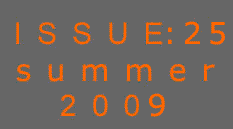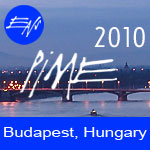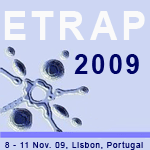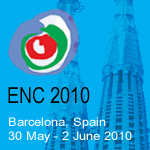ENS NEWS N° 25
Public empowerment and political will: the key to sustaining a nuclear tomorrow.
Concern about reducing CO2 emissions and maintaining adequate supplies of energy, as well as a healthy dose of common sense, have led many people to lend their support, sometimes enthusiastically and sometimes reluctantly, to the nuclear bandwagon. As nuclear energy’s pariah status has decreased public acceptance of it has increased and the latest public opinion polls have revealed that there is now virtual parity between those who are in favour and those who are against nuclear energy (44% - 45%). More people than ever before are now prepared to listen to the nuclear case. But one issue above all continues to cast a shadow over growing public acceptance, the thorny question of what to do with the radioactive waste. Traditionally the public has always been more aware of the “inherent dangers” of radioactive waste rather than of the existence of safe technological solutions for handling it. The anti-nuclear lobby never misses an opportunity to conjure up apocalyptic visions of what will happen if even more waste is produced and this has, to a large extent, conditioned the public’s thinking on the subject. But what can we do to effectively reverse the situation? The secret lies in knowledge. Canvassing of public opinion has shown that the more people know about nuclear energy the more they are in favour of it. What’s more, support for nuclear energy would be even greater if the public was reassured that the waste is being handled safely and in a sustainable way. So, greater knowledge of nuclear energy in general and of available waste management solutions in particular, would empower citizens to make informed judgements about nuclear energy. This empowerment would put more pressure on decision-makers to show the will needed to drive forward a common EU-wide legislative framework for waste and to create a sound platform upon which the future of nuclear energy could develop. This would enable Europe’s nuclear research effort to move up a gear and put the emphasis on solutions, not problems.
It’s crucial, therefore, that we – both the scientific community and industry - start getting our message across with as much impact and conviction as our ideologue opponents. With ambitious new build programmes in place in a number of European countries, communicating successfully is more than ever a sine qua non.
It would be true to say, however, that the debate about radioactive waste has intensified, with increased coverage of the issue in the media and greater involvement of stakeholders in the decision-making processes. In early June, for example, it was announced that, following lengthy stakeholder discussions, the Swedish power utility, Vattenfall, had chosen the Forsmark NPP as the location for Sweden’s first operational deep geological repository for radioactive waste. The new site will store long-lived highly radioactive waste from the country’s 10 nuclear reactors deep underground in Sweden’s granite rock formation. Increased exposure to the facts is gradually filtering through, but perhaps not as much or as quickly as it needs to. There are many other research activities that have delivered solutions that the public ought to know more about. Finland, for example, will also have a deep geological repository operational in the near future, at Posiva’s Onkalo site. Extensive research into the suitability of salt as a host substance is being carried out at the underground laboratory in Gorleben, Germany. The site could provide a suitable deep geological storage site some time in the future, if the political climate in Germany were to change. Then there is the advanced research into the suitability of clay as a host substance that is being done by SCK-CEN in Mol (Belgium), by ANDRA in Bure (France) and at Grimselpass, in Switzerland. In addition, the capacity for Generation IV reactors to create less waste in the future is another important focus of research that the public ought to know about. With more information on the relevant research available on public websites and press and public visits to research facilities on the increase, a lot is being done to try and bridge the public knowledge deficit. But more can always be done.
After increasing the public’s knowledge of the facts, the next major challenge is influencing the political process. Politicians must also see the light and be persuaded to show the requisite political will to transform successful research into everyday practical solutions. But what is happening in Europe’s corridors of power? Well, the European Nuclear Energy Forum (ENEF) and the Sustainable Nuclear Energy Technology Platform (SNETP) continue to play a vital role in channelling political efforts into supporting nuclear energy. Furthermore, once the EU’s much-anticipated Nuclear Safety Directive is adopted, it is generally believed that the next big legislative heavyweight in the pipeline is a Directive on radioactive waste. It is hoped that this legislation will go a long way to creating the common legal framework on radioactive waste that everyone so craves. More importantly, it would enable the achievements of research to get the recognition that they so richly deserves. Increasing knowledge of nuclear energy based on the facts, coupled with greater political will; that is the winning formula that could go a long way to securing the legacy and future contribution of nuclear energy.
ENS NEWS would like to hear the latest news from ENS members about the work they are doing in the field of radioactive waste management, or about what they are doing to engage the public more. ENS NEWS is accessible to the public via the ENS website. Your views and the information you provide could further fuel this important debate.
ENS NEWS N° 25 kicks off with the traditional Word from the President piece, which on this occasion focuses on the recent European Nuclear Young Generation Forum conference (ENYGF09), in Cordoba, Spain, and on the key role that the YGN network plays within the ENS family.
Andrew Teller’s regular column then explores the correlation between electricity generation and the human development index, a UN compiled index for evaluating the degree of human well-being in every country based on factors like life expectancy at birth, level of education and Gross Domestic Product. One of the conclusions he reaches is that the view that energy conservation alone will answer tomorrow’s energy need is, to say the least, a simplistic one.
There are four major conferences under the spotlight in this edition’s ENS Events section: TOPFUEL, which takes place in Paris from 6 - 9 September 2009; ETRAP, from 8 -12 November, in Lisbon; PIME 2010, which takes place from 14 -17 February, in Budapest and ENC 2010, which will take place in Barcelona, from 30 May - 3 June 2010.
ENS NEWS N° 25 contains a bumper Member Societies and Corporate Members section that includes reports on, among other things, the recent meeting of the European Atomic Energy Society, in Slovakia; a critical analysis of the pollution status around France’s nuclear sites, environmentally-conscious Sweden’s continuing use of nuclear energy and a detailed look at the Guinevere experiment being carried out at SCK-CEN, in Mol.
The YGN section provides two reports: the first is a detailed and personal account by a YGN “roving reporter” of the ENYGF09 conference in Cordoba, Spain, which the President mentioned in his opening piece, and the second is an analysis of the evolving political, and rather controversial, cause célèbre about a potential lifetime extension of the Garoña NPP, in Spain.
The ENS World News section opens with an article about the ongoing boom in nuclear qualifications being gained by young people in the US, which is a response to the gathering momentum of the global nuclear revival and the increasing attraction of a career in nuclear science. Next up is a selection of interesting press reports from the NucNet team. Finally, there is the latest news regarding upcoming ENS conferences.
On behalf of ENS NEWS I would like to wish you and yours a great summer and I hope that you will return relaxed, rested and raring to go.
All the best!
|

Mark O’Donovan
Editor-in-Chief, ENS NEWS
|
|
|





